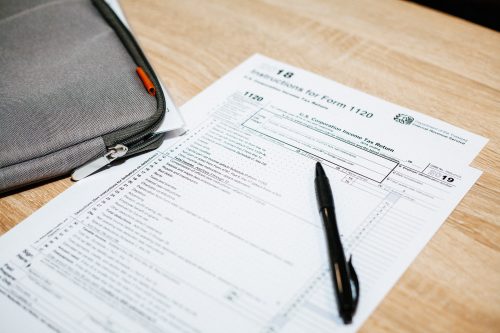IRS Unveils “Dirty Dozen” Tax Scams of 2020
Posted in In the news on August 14, 2020
The Internal Revenue Service (IRS) revealed its annual “Dirty Dozen” list of tax scams. Many of the schemes listed relate to COVID-19 and Economic Impact Payments (EIP). The IRS urges the public to constantly be on guard and to look out for others in their lives.
“Tax scams tend to rise during tax season or during times of crisis, and scam artists are using pandemic to try stealing money and information from honest taxpayers,” said IRS Commissioner Chuck Rettig. “The IRS provides the Dirty Dozen list to help raise awareness about common scams that fraudsters use to target people. We urge people to watch out for these scams. The IRS is doing its part to protect Americans. We will relentlessly pursue criminals trying to steal your money or sensitive personal financial information.”
The List of Scams
Be it online or on the phone, The IRS urges taxpayers to avoid engagement with potential scammers. The criminals behind these fraudulent acts view everyone as potentially easy prey. It’s important to remember that “when the IRS needs to contact a taxpayer, the first contact is normally by letter delivered by the U.S. Postal Service. The IRS doesn’t normally initiate contact with taxpayers by email, nor does it send text messages or contact through social media channels.”

The IRS released a list of tax scams.
- Phishing: Taxpayers should be aware of fake emails or websites looking to steal personal information.
- Fake Charities: Legitimate charities will provide their Employer Identification Number if requested, which can be used to verify their legitimacy. Taxpayers can find legitimate and qualified charities with the search tool on IRS.gov.
- Threatening Impersonator Phone Calls: The IRS will never threaten a taxpayer or surprise him or her with a demand for immediate payment.
- Social Media Scams: Social media allows anyone to share information with anyone else on the internet. Scammers use that information as ammunition for a wide variety of scams.
- EIP or Refund Theft: These cons stem from identity theft whereby criminals file false tax returns or supply other bogus information to the IRS to divert refunds to wrong addresses or bank accounts.
- Senior Fraud: Seniors need to be alert for a continuing surge of fake emails, text messages, websites and social media attempts to steal personal information.
- Non-English Speakers Fraud: Criminals target groups with limited English proficiency. These scams are often threatening in nature.
- Unscrupulous Return Preparers: Taxpayers should avoid “ghost” preparers who expose their clients to potentially serious filing mistakes as well as possible tax fraud and risk of losing their refunds.
- Offer in Compromise (OIC) Mills: Be wary of misleading tax debt resolution companies that can exaggerate chances to settle tax debts for “pennies on the dollar” through an OIC.
- Fake Payments with Repayment Demands: The IRS will never demand payment by a specific method.
- Payroll and HR Scams: This phishing scam is designed to steal Form W-2s and other tax information.
- Ransomware: Ransomware is malware targeting human and technical weaknesses to infect a potential victim’s computer, network or server.
To report tax-related illegal activities, refer to the IRS’ chart explaining the types of activity and the appropriate forms or other methods to use. You should also report instances of IRS-related phishing attempts and fraud to the Treasury Inspector General for Tax Administration at 800-366-4484.
Source: IRS.gov